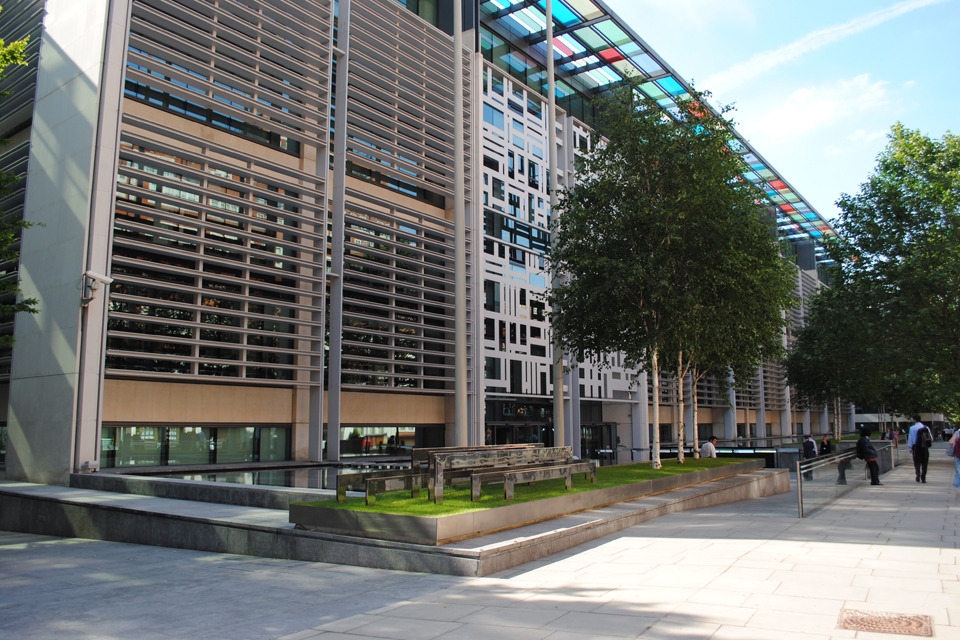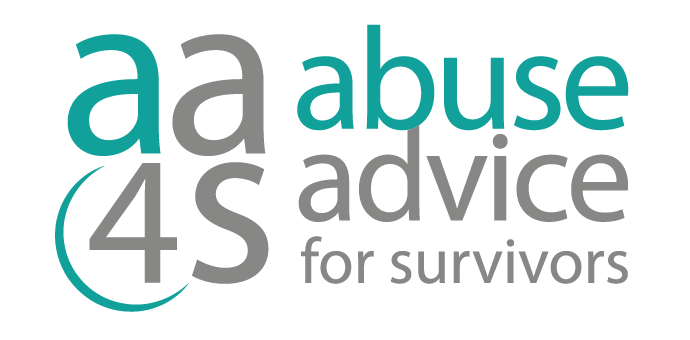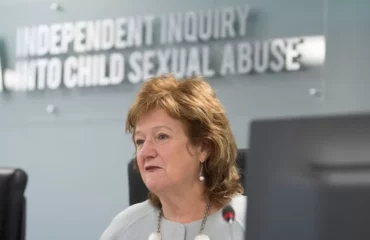
When I first read the Home Office reaction to the report of the Independent Inquiry into Child Sexual Abuse, which took a long time, so convoluted was its style, that I wondered whether my initial reaction was a correct one, and would align with others. You can read my earlier article here.
Whilst hindsight is a wonderful thing, it turns out that my reaction was mild in comparison to what other commentators thought. I knew that IICSA itself was disappointed, but their initial reaction on Twitter turned out to be an understatement of what was to come on, not only, Radio 4 Woman’s Hour, but also a letter to the times.
All in all a pretty universally damning indictment and a wasted opportunity to make much needed reforms to the law surrounding the safeguarding and abuse of children. The government’s woeful response is all the more wasteful when one considers the cost of the 7 year Inquiry at £186 Million.
Here are the quotes for you to read:-
IICSA
The Chair of the Independent Inquiry into Child Sexual Abuse, together with the Panel members, wrote to The Times on 30 May 2023, setting out their very forthright criticism of the Government’s response to the recommendations in their final report. The letter states:
‘Sir, We are writing to express our deep concern at the government’s inadequate response to the 20 recommendations in the final report of the Independent Inquiry into Child Sexual Abuse. The inquiry lasted seven years, published 52 reports and made more than 100 recommendations. These were based on exhaustive investigations, research, consultation and formal evidence-taking from victims, experts and a wide range of organisations and institutions.
‘By its response, the government seems to have failed to understand the recommendations either in substance or significance. Some are deemed to be “accepted” when, in reality, they clearly are not, while others are conditional on yet more research, review or consultation. To none is a timeline attached or a committed action plan. We fear that, for the sake of other political priorities, action will be deferred indefinitely.
‘While the government is free to reject or partially accept the recommendations of a statutory public inquiry, what it ought not be free to do is to purport to accept them through what is little more than a very weak and, at times, apparently disingenuous official response. As a result, the hopes and expectations of victims and survivors will be dashed yet again, and the scourge of child sexual abuse will continue to increase unabated.
The Times 30th May 2023
‘Alexis Jay OBE, chairwoman; Drusilla Sharpling CBE, Ivor Frank, Sir Malcolm Evans, panel members, IICSA’
Article 39
Article 39 is a small, independent charity which fights for the rights of children living in state and privately-run institutions (boarding and residential schools, children’s homes, immigration detention, mental health inpatient units and prisons) in England.
“We take our name from Article 39 of the United Nations Convention on the Rights of the Child, which grants every child who has been abused or suffered other rights violations the right to recover in environments where their health, self-respect and dignity are nurtured.“
Woeful response to child sexual abuse inquiry
May 23, 2023 by Carolyne Willow
The Home Secretary Suella Braverman made a statement in the House of Commons on 22 May, setting out the government’s response to the seven-year Independent Inquiry into Child Sexual Abuse (IICSA). This was the UK’s largest-ever public inquiry, and its final report, published in October 2022, made 20 recommendations. Some of these recommendations had been made previously upon release of individual investigation reports. Despite the Home Secretary telling Parliament that the government would act on 19 of the 20 recommendations, the government’s published response shows that ministers have barely accepted the changes the inquiry considered essential to provide justice to victims and survivors, and to protect children now. The inquiry chair, Professor Alexis Jay, and the Victims and Survivors Consultative Panel issued a statement via Twitter asking “the government to reconsider and accept and enact all our recommendations in full”.
Article 39’s Director, Carolyne Willow, said:
“The scale of abuse exposed by this inquiry, together with the enormity of the failures of institutions to protect children who relied upon them, demands a comprehensive government strategy and commitment to implement its recommendations as quickly as possible. Where government believes children can be better protected through stronger and different measures, then it should say so, and provide its own evidence – rather than prevaricating. That ministers have rejected the inquiry’s call for a ban on penal techniques designed to deliberately cause children severe pain is a disgrace. The inquiry was clear that these techniques are a form of child abuse. What kind of country has a government which refuses to prohibit a form of child abuse?”
The government:
- Has REJECTED the inquiry’s recommendation (first made in February 2019) that the use of pain-inducing restraint in child prisons be prohibited by law. Describing these brutal techniques as a form of child abuse in themselves, the inquiry found that their use subjugates children and makes them more vulnerable to sexual abuse. The inquiry highlighted that training adults in positions of authority to inflict severe pain on children perpetuates a violent culture, and is the antithesis of child protection. Article 39 has long pressed for the removal of these techniques, and we have submitted a series of freedom of information requests to government, inspectorates and child protection and human rights bodies to examine how ministers came to reject this decision – see below.
- Has REJECTED the inquiry’s recommendation for a dedicated Cabinet Minister for Children, stating that the current Secretary of State for Education role is sufficient.
- Has REJECTED the inquiry’s call for a new Child Protection Authority in England – to provide advice to organisations, undertake focused child protection inspections and monitor the implementation of the inquiry’s recommendations – stating that the substantial changes in culture and practice envisaged by the inquiry can be achieved through strengthening the Child Safeguarding Practice Review Panel and through pursuing measures recommended by the Josh MacAlister care review.
- Has REJECTED the inquiry’s recommendation that all regulated companies providing online search services and user-to-user online services be required to pre-screen for known child sexual abuse material. The government states pre-screening would not address live-streaming services, and therefore the inquiry’s mandatory measure would not be appropriate for the services covered by the Online Safety Bill currently passing through Parliament. It further states Ofcom will be able (with new powers given to it via the Bill) to require pre-screening.
- Has REJECTED the inquiry’s recommendation for legislative change to remove the three-year limitation period for personal injury claims brought by victims and survivors of child sexual abuse (who are still living; this recommendation does not apply to the estates of victims and survivors). Instead of changing the law, the government states it will publish a consultation on strengthening guidance to judges on exercising their discretion to disapply the three-year limitation period.
- APPEARS TO REJECT the inquiry’s recommendation for a single core data set on child sexual abuse. The government’s response summarises the various sources of data collection which currently exist, including through police forces / the Home Office, the Office of National Statistics and local authorities / the Department for Education. Official recorded crime statistics for rape and many other sexual offences where the victim is a child relate only to those aged 15 and under; data relating to child victims aged 16 and 17 are absorbed within adult statistics.
- APPEARS TO REJECT the inquiry’s recommendation (first made in March 2020) that legislation be introduced to require providers of online services to have “more stringent age verification measures”. The government’s response states it ‘expects’ companies to have age verification in place, and notes the Online Safety Bill currently passing through Parliament has been amended to clarify “that providers may need to use age assurance to identify the age of their users”.
- APPEARS TO REJECT the inquiry’s recommendation that it introduces a ‘national guarantee’ of specialist and accredited therapeutic support for all child victims of sexual abuse. The government’s response sets out a number of national developments already in train, and commits to “elicit views on the future of therapeutic support” but there is no commitment to an entitlement in law or NHS policy.
- APPEARS TO REJECT the inquiry’s novel proposal for looked after children to be able to seek an order from the court to stop their local authority from acting in a way (or proposing to act) which risks causing significant harm to the child. Such a legal mechanism could, for example, give looked after children a much-needed new legal route to stop forced moves.
- APPEARS TO REJECT the inquiry’s recommendation for the professional registration of prison staff (in young offender institutions and secure training centres), deciding instead to have an ‘internal register’ within the Ministry of Justice. (The inquiry first made this recommendation in February 2019).
- APPEARS UNDECIDED on amending the Criminal Injuries Compensation Scheme (CICS) to include forms of child sexual abuse not currently covered – including online-facilitated child sexual abuse. Government also appears undecided on the inquiry’s recommendation to stop the automatic exclusion from CICS of victims and survivors with unspent convictions where this offending was likely to be linked to the abuse they suffered as a child. Further, the government appears to be still undecided on whether the time limit for compensation should be extended to seven years, as recommended by the inquiry. The government’s response describes recent consultations it has undertaken, and promises to publish another consultation shortly.
- APPEARS UNDECIDED on the inquiry’s recommendation that legislation be introduced so that enhanced Disclosure and Barring Service (DBS) checks can be undertaken on those recruited outside the UK to work or volunteer within the UK, and vice versa. (The inquiry first made this recommendation in January 2020).
- APPEARS UNDECIDED on the inquiry’s recommendation that government acts to ensure that those appointed to work or volunteer with children on a frequent basis (whether or not they are supervised) can be checked with the Disclosure and Barring Service first (access to the ‘barred list’).
- ACCEPTS THE IMPORTANCE of the inquiry’s recommendation for regular programmes to raise public awareness of child sexual abuse, but does not explicitly agree to implementing it. The response sets out a number of awareness-raising campaigns that have already been funded by government and commits to exploring other approaches.
Ministers appear to have accepted 3 of the inquiry’s 20 recommendations. They have AGREED to:
- Introduce a redress scheme, and have committed to consult on this shortly.
- Introduce mandatory reporting for child sexual abuse, and have issued a call for evidence (deadline 14 August 2023).
- Introduce arrangements for the professional registration of staff working in care roles in children’s homes, though no time-scales or detail have yet been announced. (The inquiry first made this recommendation in April 2018).
IICSA’s final report is a devastating read. It shows the countless ways adults in positions of power over children have betrayed and subjugated them – within their families, at school, in foster care, children’s homes, prisons, within religious organisations, and in places of power such as national and local politics and the senior management of institutions and organisations.
Over the past seven years, the inquiry has exposed the shocking scale of child sexual abuse, and the deeply harmful impact – as children are growing up and very often throughout the rest of their lives. Its final report should have stopped government in its tracks and made ministers from the Prime Minister down ask whether our country has the laws and systems in place to ensure children know that they have the right to:
- Feel and be safe from all forms of violence;
- Have people and places to which they can turn when they are subject to abuse, or fear they may be abused; and
- Sensitive, timely and effective help to recover from abuse, for as long as they need it.
IICSA heard and received testimony from over 6,200 victims and survivors through its Truth Project. Fifteen investigations were undertaken by IICSA in total, leading to 19 separate investigation reports. Article 39 contributed to 2 of the 15 investigations – on custodial institutions and effective leadership in child protection.
On 23 May, in response to the government’s rejection of the inquiry’s recommendation to prohibit pain-inducing techniques in custodial institutions for children, Article 39 submitted freedom of information requests to the following bodies and organisations. This is to help us assess how the government came to its decision.
– Ministry of Justice
– Children’s Commissioner for England
– Equality and Human Rights Commission
– Her Majesty’s Inspectorate of Prisons
– Ofsted
– Care Quality Commission
– Child Safeguarding Practice Review Panel
– Office of Chief Social Worker for Children and Families



